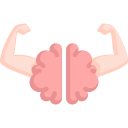Key Psychological Tips for Parents

Encourage, Don’t Pressure
Learning should be enjoyable. Encourage your child gently without forcing tasks upon them.
Practical Tip: If your child shows interest in a particular topic or activity, provide them with resources and let them explore it at their own pace. For example, if they love dinosaurs, give them books and videos about dinosaurs and ask them what they learned.

Embrace Mistakes
Mistakes are part of learning. Share your own mistakes with your child to show that it’s okay to make errors and learn from them.
Practical Tip: When your child makes a mistake, respond with understanding. Say something like, “It’s okay to make mistakes. I make mistakes too. Let’s figure out how to fix it together.” Share a personal story about a mistake you made and how you learned from it.

Praise Efforts
Recognize and praise your child’s efforts, no matter how small. This builds their confidence and motivates them to keep trying.
Practical Tip: If your child writes a story, even if it’s just a few sentences, praise their creativity and effort. For instance, say, “I love how you described the sunset in your story. It’s very vivid! Great job!” Acknowledge specific aspects of their work to show genuine appreciation.

Emotional Conversations
Spend a few minutes each day talking with your child about their day and yours. This helps them learn to express and handle emotions.
Practical Tip: Establish a daily routine where you sit down with your child, perhaps at bedtime, and share how your day went. Start by talking about your own day in detail, describing how you felt about certain events. Then, ask your child about their day. Use open-ended questions like, “What was the best part of your day?” and “Did anything make you feel sad or upset today?” This practice helps them learn to articulate their emotions and understand yours.
Activities for Children Aged 4-6

1. Simple Descriptions
Give your child pictures of animals or everyday objects. Ask them to describe what they see. This enhances their vocabulary and helps them form sentences.

2.Sorting Games
Use toys or household items for sorting activities. Ask your child to sort items by color, shape, or size. This improves their analytical and logical thinking.

3. Songs and Rhymes
Use songs, especially lullabies (“angai geet”), during bedtime. Sing your childhood songs or create your own. This connects the child with you, building memories and a sense of safety and security. When children feel loved and secure, they are more likely to focus on their tasks and less likely to seek attention in unnecessary ways during their adolescent and teen years.
Activities for Children Aged 7-9

1. Story Starters
Give your child the beginning of a story and ask them to continue it. This encourages creativity and improves their writing skills.

2. Word of the Day
Introduce a new word each day and use it in sentences throughout the day. Encourage your child to do the same. This expands their vocabulary and comprehension.

3. Open-Ended Questions
After reading a story or watching a show, engage in a discussion about it. Start the topic by sharing your thoughts, then ask open-ended questions like, “What did you think of the main character?” or “How would you have ended the story?” This encourages deeper thinking and helps your child articulate their thoughts. These conversations have long-term benefits, helping children feel comfortable expressing themselves throughout their lives.

4. DIY Projects
Engage your child in simple DIY projects like making a scrapbook or creating a model. These activities boost their creativity, logical thinking, and ability to follow instructions.
Activities for Children Aged 10-12

1. Book Discussions
Encourage your child to read books and discuss them with you. Talk about the plot, characters, and what they learned from the story. This improves their comprehension and critical thinking.

2. Debates and Discussions
topics your child is interested in and have friendly debates or discussions. This enhances their analytical, logical, and verbal skills.

3. Creative Writing
Encourage your child to write stories, poems, or essays. Use prompts like “What if…?” or “What would you do if…?” to spark their imagination. Provide constructive feedback and praise their efforts to boost their confidence and writing skills.

4. Puzzles and Brain Teasers
Solve puzzles, crosswords, and brain teasers together. These activities improve logical thinking, problem-solving skills, and vocabulary.
Developing a Love for Learning

1. Encourage Curiosity
Always encourage your child’s curiosity. Answer their questions patiently and explore new topics together.
Practical Tip: If your child asks about how a plant grows, take the time to plant seeds together and observe their growth. Read books or watch videos about plant life cycles to satisfy their curiosity.

2. Create a Learning Environment
Designate a quiet and comfortable space for studying and learning activities.
Practical Tip: Set up a small, organized area with books, supplies, and a comfortable chair. Make it inviting and free from distractions to help your child focus.

Set Realistic Goals
your child set achievable goals and celebrate their accomplishments, no matter how small.
Practical Tip: If your child is learning to read, set a goal of reading one short book a week. Celebrate with a small reward or extra praise when they achieve it.

1. Be a Role Model
Show your love for learning by reading, exploring new hobbies, and sharing your knowledge with your child.
Practical Tip: Let your child see you reading books or pursuing hobbies. Share interesting facts you learn and encourage them to ask questions and explore their interests.
The Benefits of Enjoying Learning
By fostering a love for learning, you are helping your child become a well-rounded individual who can navigate life’s challenges with confidence and resilience. They will be more likely to succeed, not just as participants in the rat race, but as thoughtful, capable, and happy individuals.
Implementing these activities at home can significantly enhance your child’s vocabulary, comprehension, analytical, logical, and creative skills. Remember, the key is to make learning enjoyable and stress-free. Encourage your child to explore, ask questions, and make mistakes. Praise their efforts and celebrate their progress. By doing so, you will foster a love for learning that will benefit them throughout their lives. I hope you find these tips helpful. Feel free to reach out if you have any questions or need further guidance. Happy learning!



